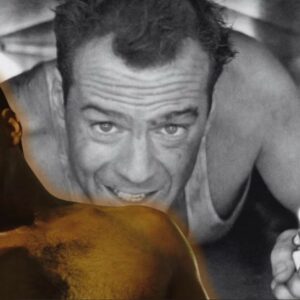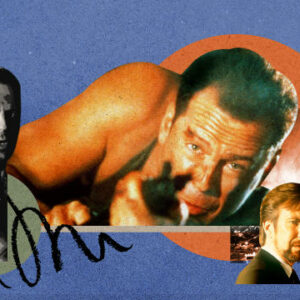Introduction
Michael Jackson, often hailed as the King of Pop, is an indelible figure in the music industry whose influence extends beyond his unparalleled success. His innovative songwriting and exceptional vocal delivery redefined pop music, leaving an enduring legacy that continues to shape the genre. Jackson’s approach to music was not only groundbreaking but also set a new standard for artists across the spectrum. In this article, we will explore Michael Jackson’s distinctive songwriting techniques, his revolutionary vocal style, and how these elements compared to his contemporaries and successors in the pop genre.
Songwriting Style
Michael Jackson’s songwriting was characterized by a meticulous attention to detail and an innate sense of rhythm and melody. Unlike many of his peers, Jackson was deeply involved in the creation of his music. His songwriting process was a blend of personal expression and commercial appeal, aimed at creating songs that resonated with a broad audience while also reflecting his artistic vision.
Collaborative Genius
One of Jackson’s most notable collaborations was with producer Quincy Jones. Together, they crafted some of the most iconic albums in music history, including “Off the Wall” (1979) and “Thriller” (1982). Jones, known for his production prowess, and Jackson, with his unique musical ideas, created a synergy that pushed the boundaries of pop music. Their collaboration exemplified a blend of creative vision and technical skill, resulting in a sound that was both innovative and accessible.
Jackson’s songwriting often involved working with talented lyricists and composers. His collaborations with people like Rod Temperton, who wrote hits such as “Thriller” and “Rock with You,” showcased Jackson’s ability to merge his vision with the skills of others, creating music that was greater than the sum of its parts. This collaborative approach not only enriched Jackson’s music but also allowed him to experiment with different styles and genres.
Themes and Lyrics
Jackson’s lyrics often explored themes of love, loneliness, and social issues, reflecting his personal experiences and observations of the world. Songs like “Billie Jean” and “Beat It” tackled themes of identity and rebellion, while “Man in the Mirror” and “Earth Song” addressed social justice and environmental concerns. His ability to infuse his songs with meaningful content while maintaining a commercial appeal was a key factor in his widespread success.
Unlike many pop artists who focused primarily on romance and personal relationships, Jackson used his platform to address broader societal issues. This thematic depth distinguished him from his contemporaries and contributed to the lasting impact of his music.
Musical Innovation
Jackson’s songwriting was not limited to conventional pop structures. He was known for his experimentation with different musical elements and genres. For instance, “Thriller” combined pop, rock, and funk, while “Bad” incorporated elements of dance and electronic music. This genre-blending approach set Jackson apart from other pop artists of his time and demonstrated his willingness to push musical boundaries.
His use of unconventional song structures and innovative production techniques, such as the incorporation of sound effects and elaborate arrangements, contributed to a distinctive sound that was immediately recognizable. Jackson’s music often featured intricate arrangements and a fusion of styles that created a rich, layered listening experience.
Singing Style
Michael Jackson’s vocal style was another critical aspect of his musical innovation. His voice was characterized by its range, versatility, and emotive quality. Jackson’s ability to convey emotion through his singing and his distinctive vocal techniques contributed significantly to his impact on pop music.
Vocal Techniques
Jackson’s vocal delivery was marked by his use of various techniques, including falsetto, vocal hiccups, and breath control. His falsetto was particularly notable for its clarity and strength, allowing him to reach high notes with ease. Songs like “Don’t Stop ‘Til You Get Enough” and “Dirty Diana” showcased his ability to switch seamlessly between his chest voice and falsetto, creating dynamic and engaging performances.
Jackson’s use of vocal hiccups and rhythmic phrasing added a unique texture to his music. This technique, which involved short, staccato bursts of sound, became a signature element of his style. It was prominently featured in songs like “Billie Jean” and “Wanna Be Startin’ Somethin’,” where it contributed to the infectious rhythm and energy of the tracks.
Emotional Expression
Jackson’s ability to convey a wide range of emotions through his singing was one of his greatest strengths. His performances were often infused with a sense of urgency and passion, making his music resonate deeply with listeners. Songs like “Human Nature” and “She’s Out of My Life” highlighted his capacity for tender, introspective expression, while tracks like “Bad” and “Remember the Time” showcased his dynamic and energetic delivery.
His vocal performances were not only technically impressive but also emotionally compelling. Jackson’s ability to connect with his audience on an emotional level was a key factor in his success and enduring popularity.
Stage Presence and Performance
Jackson’s vocal prowess was complemented by his exceptional stage presence and performance skills. His live performances were renowned for their energy, precision, and innovation. Jackson’s ability to combine complex choreography with his vocal performance set a new standard for live shows in the pop industry.
The iconic “moonwalk,” which he popularized, became a symbol of his influence and creativity. His performances were characterized by a seamless integration of dance and music, creating a multimedia experience that captivated audiences around the world.
Comparison with Contemporaries and Successors
Michael Jackson’s influence on the pop genre is evident when comparing his work to that of his contemporaries and successors. While many artists have drawn inspiration from his music, few have matched the originality and impact of his contributions.
Comparisons with Contemporaries
During the 1980s, Jackson’s contemporaries included artists like Prince, Madonna, and George Michael. Each of these artists brought their unique style to the pop genre, but Jackson’s ability to blend different musical elements and his groundbreaking approach to production set him apart.
Prince, for instance, was known for his eclectic style and musical experimentation, but his focus was more on rock and funk influences. Madonna, on the other hand, was a trailblazer in terms of pop culture and image, but her music often adhered to more conventional pop structures. Jackson’s work, particularly his albums “Thriller” and “Bad,” combined innovative production with a diverse range of musical influences, creating a sound that was both fresh and universally appealing.
George Michael, with his smooth vocals and pop sensibilities, was a significant figure in the 1980s pop scene, but Jackson’s impact on music video production and live performance set a new benchmark for the industry. Michael’s success was substantial, but Jackson’s influence on pop culture and music production was unparalleled.
Influence on Successors
Jackson’s influence extended beyond his contemporaries, shaping the careers of many artists who followed. His innovative approach to music videos, particularly with the release of “Thriller,” set a new standard for visual storytelling in the music industry. This impact can be seen in the work of artists like Beyoncé and Lady Gaga, who have adopted and expanded upon Jackson’s approach to music videos and live performances.
Beyoncé, for example, has incorporated elements of Jackson’s performance style into her own shows, blending intricate choreography with powerful vocal delivery. Lady Gaga has also drawn inspiration from Jackson’s visual and musical innovation, using elaborate costumes and creative music videos to push the boundaries of pop music.
Legacy and Continuing Influence
Michael Jackson’s legacy continues to influence the pop genre and the broader music industry. His contributions to songwriting, vocal performance, and music video production have left an indelible mark on the industry. His ability to blend different musical elements, his distinctive vocal style, and his innovative approach to performance have set a standard that continues to inspire and challenge new generations of artists.
In addition to his musical contributions, Jackson’s influence extends to the cultural and social impact of his work. His efforts to address social issues through his music and his commitment to charitable causes have cemented his status as an iconic and influential figure in the music industry.
Conclusion
Michael Jackson’s unique sound and innovative approach to songwriting and singing redefined the pop genre, leaving a lasting legacy that continues to resonate with audiences and influence artists worldwide. His collaboration with Quincy Jones, his thematic depth, and his experimental approach to music set him apart from his contemporaries. His exceptional vocal techniques and emotive delivery, combined with his groundbreaking stage performances, established new standards for pop music.
Jackson’s influence extends beyond his own era, shaping the careers of numerous artists who followed in his footsteps. His impact on music videos, live performances, and the broader cultural landscape is a testament to his enduring legacy. Michael Jackson’s contribution to the world of pop music remains unparalleled, solidifying his status as one of the greatest and most influential artists in music history.





